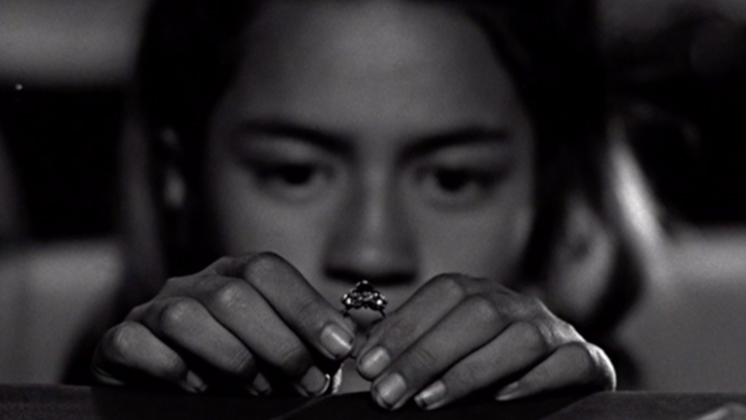A Year in Shorts Day 76: "Two Cars, One Night"
We here at The Great Oscar Baiter are great fans of New Zealand triple threat Taika Waititi, and thankfully it seems the Oscars are following suit. Although it’s perhaps not surprising that the Academy didn’t nominate What We Do in the Shadows, Hunt for the Wilderpeople or even Thor: Ragnarok (the Visual Effect category was pretty competitive in 2017!), it was still nice to see Waititi get the recognition he deserved last year with Jojo Rabbit. But although Best Adapted Screenplay may have gotten Waititi his first Oscar win, it wasn’t his first nomination. That came over a decade prior, with his 2004 short Two Cars, One Night.
Following the story of three kids left in the parking lot while their parents drink in a bar, Two Cars, One Night is certainly a lot more low key than Waititi's more recent work (with nary an imaginary Hitler or prancing Jeff Goldblum in sight). Still, the short definitely features a lot of his familiar staples, from the breezy, naturalistic dialogue to the surprisingly strong performances from kid actors. Combined with some striking black-and-white cinematography, you've got the makings for a damn good short with this one.
While having good actors is always important in a film, it is crucial when your film is so dialogue driven. And entrusting all your dialogue to a trio of non-professional child actors is especially risky. But Waititi seems to have hit the jackpot here, with Rangi Ngamoki, Hutini Waikato and Te Ahiwaru Ngamoki-Richards all delivering some nice understated performances. Rangi Ngamoki is especially good in the lead role of Romeo, consistently selling the jokes by underplaying them, resulting in some great deadpan moments. Then again, I think people from New Zealand are probably the funniest people on Earth, so maybe I just respond well to this kind of comedy.
But Waititi delivers on more than just a good script and some good performances. The visuals in Two Cars, One Night are simple yet effective, and rather impressive when you consider the fact that the majority of the short is just kids sitting in cars. The use of time lapse photography to convey the passage of time might seem a little obvious, but it works well here, with the lingering traces of cigarette smoke glowing like neon being a particularly nice touch. And there is careful attention paid to blocking throughout the short, an aspect of filmmaking which so often seems to be neglected these days. Overall, Waititi's style here doesn't draw too much attention to itself, but it gets the job done and is still beautiful to look at.
Two Cars, One Night manages to feel universal through its specificity, relying on little details and character quirks to connect to deeper feelings of nostalgia and childhood longing. While not everyone can relate to the specific story being told here, everyone can remember the feelings of boredom of having to wait for their parents to finish something boring, or of meeting a fellow kid in the same boat. Perhaps the best thing you can say about Two Cars, One Night is how it successfully manages to tell a story about boredom without ever being boring. And while that might not have been enough to win the Oscar that year (losing Best Live Action Short to Andrea Arnold's Wasp, currently unseen by me), it was certainly enough to put Waititi on the radar. Seventeen years and one Oscar later, one can't help but wonder what he'll get up to next. And I, for one, certainly can't wait.
Keep up with the Oscar Baiting here on Letterboxd!
The Great Oscar Baiter is a not-for-profit work of criticism. All images herein are property of their respective owners and are protected under Fair Use.



Comments
Post a Comment